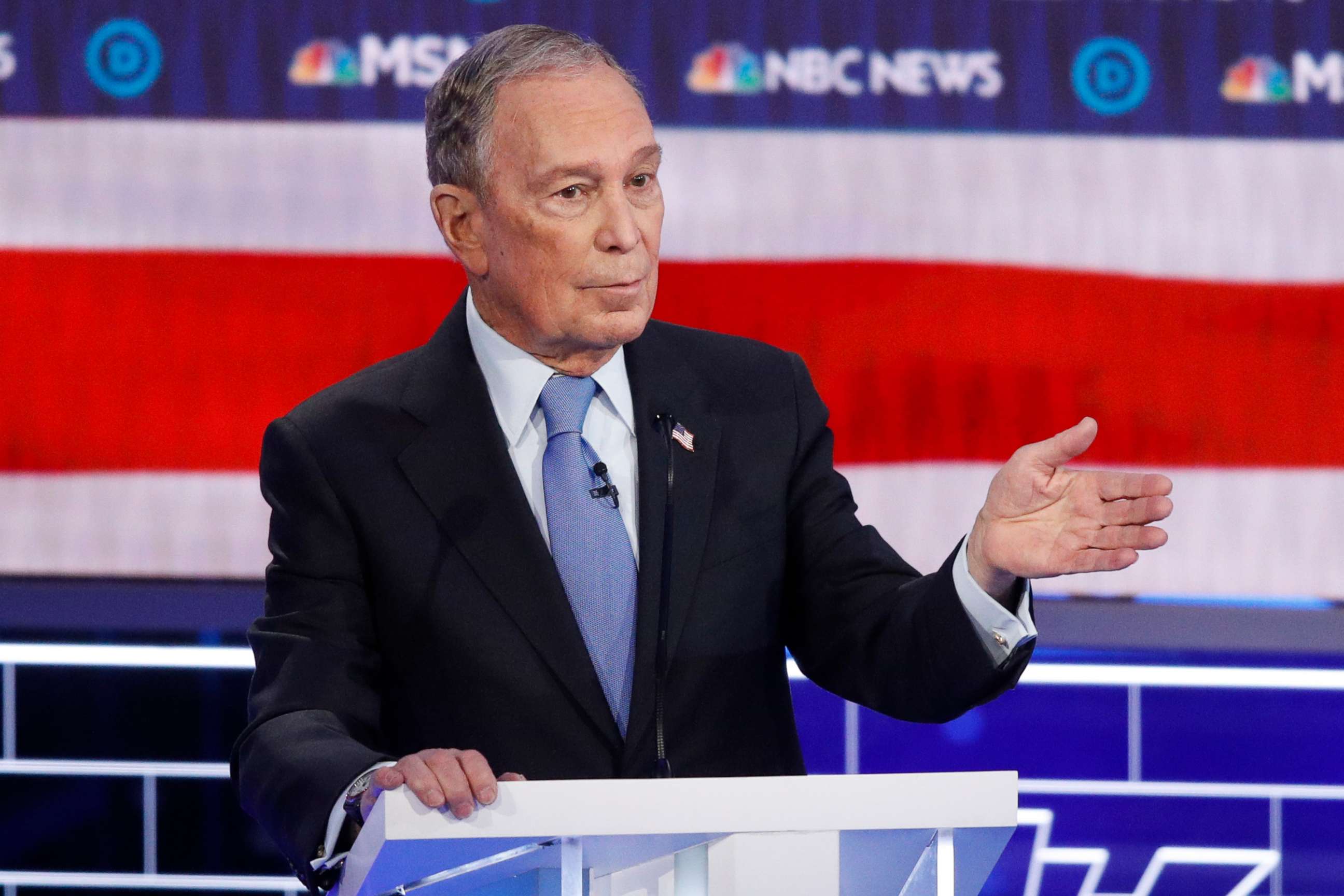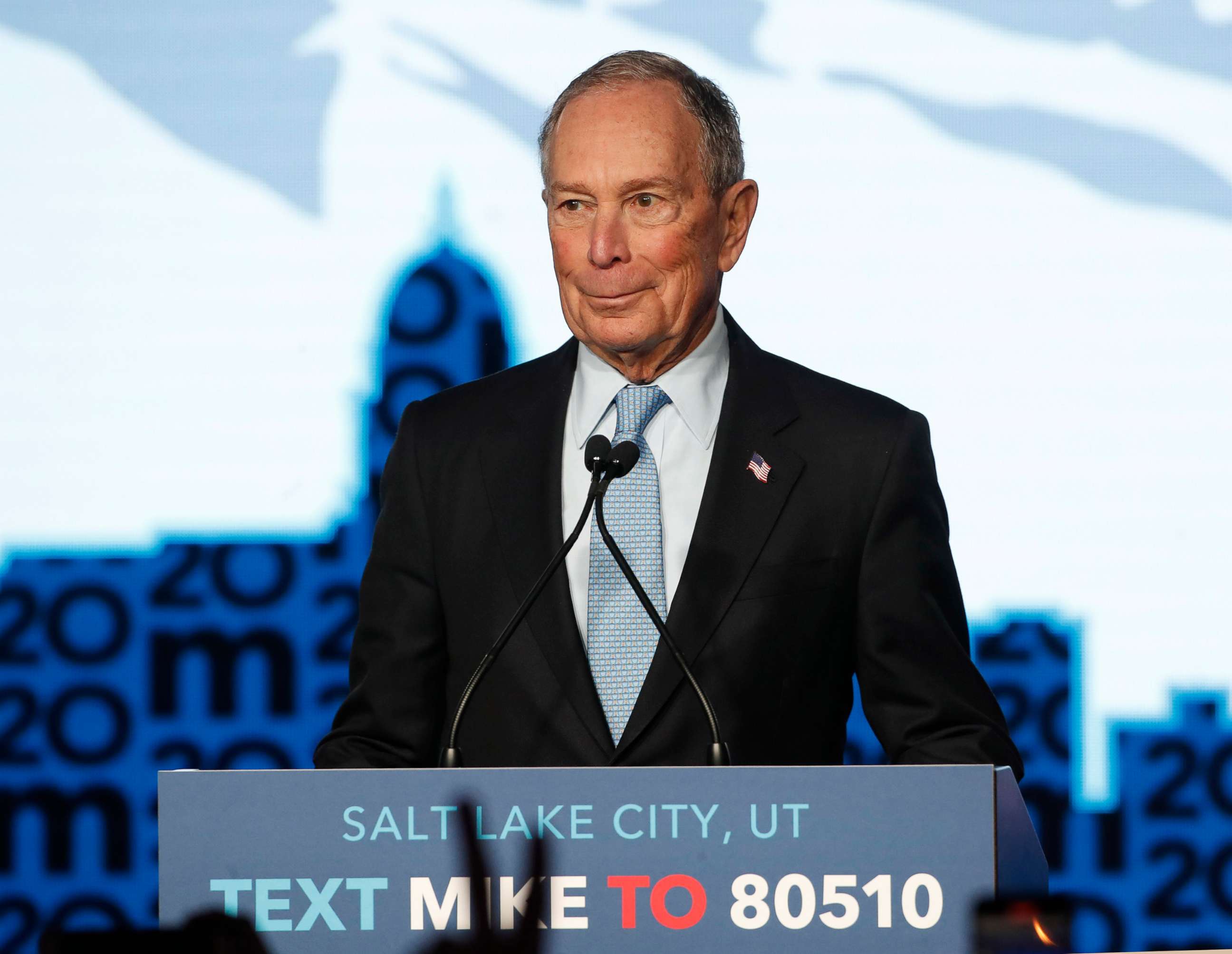Bloomberg says women involved in 3 non-disclosure agreements can ask to be released
His campaign also said his company will no longer use NDAs in such cases.
Still under fire for his response to Sen. Elizabeth Warren's questions at Wednesday's Democratic debate about non-disclosure agreements, Mike Bloomberg said on Friday he would release some NDA signatories from their agreements.
Bloomberg has identified three non-disclosure agreements from past 30 years "to address complaints about comments they said I had made," his campaign said in a statement, adding that these women should reach out to Bloomberg LP if they'd like to be released from their NDAs.
Bloomberg also announced plans to review company and campaign policies, and said his company will no longer "offer confidentiality agreements to resolve claims of sexual harassment or misconduct going forward."

ABC News has spoken with several women who expressed interest in telling their stories but feared retribution from the company, including significant financial losses for violating the terms of their deals.
"None of [the women] accused me of doing anything, other than, maybe, they didn't like a joke I told," Bloomberg said during the Democratic Debate earlier this week.
As previously reported, one confidential settlement agreement negotiated by Bloomberg's company and obtained by ABC News reveals that the plaintiff was asked to agree not to "in any way disparage" Bloomberg's company. If asked about the agreement, the person was advised to say that "the parties reached an amicable resolution of this dispute ... but should not comment further on their settlement."

Donna Clancy, an attorney for three former employees who have sued both Bloomberg and his firm, said if the women were to break their NDAs, the "terms and conditions say that they would suffer the consequences."
It's unclear whether any of Clancy's clients are among the women mentioned on Friday.
Clancy also told ABC News that Bloomberg could have simply announced he was lifting any obligation under NDAs signed by his company with women who had complained.
"But he's not saying, 'Go ahead.' He's controlling the process," Clancy added. "Who is going to call his company?"
Clancy said Bloomberg's statement is carefully worded and does not clarify whether the women will be required to return money to the company as a condition of being released from the secrecy agreements. She said it also does not address the many women she alleges have complaints about the office culture at Bloomberg's firm.
"All NDAs should be released," she said.
A Bloomberg campaign official, when reached later by ABC News, said all three women would be released without conditions after they contacted the company, and that none would be required to return any money.
Massachusetts Sen. Elizabeth Warren, a 2020 Democratic rival who's repeatedly pushed Bloomberg to lift the NDAs, said his latest move isn't enough.
Warren said on Friday that releasing some of the women who've accused him of sexual harassment from nondisclosure agreements is "just not good enough" and that he needs to offer a "blanket release" so all involved women can "step up and tell their side of the story."
"We can't have a leader of our party who selectively decides who gets to tell about their history with him," Warren told reporters in Las Vegas.
ABC News' Cheyenne Haslett and Johnny Verhovek contributed to this report.




